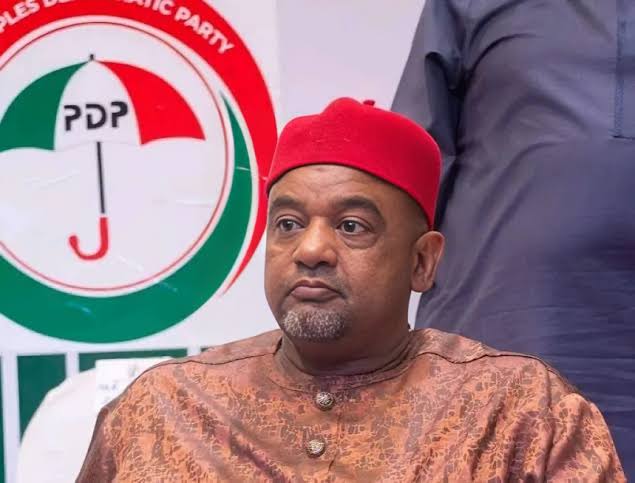The ongoing turmoil within the Peoples Democratic Party (PDP) has intensified, highlighting a growing rift among its leadership. Recently, a faction of the National Working Committee (NWC) moved to suspend acting National Chairman, Umar Damagum, and National Secretary, Samuel Anyanwu, citing allegations of disloyalty to the party as the primary reason for their decision. This internal conflict emerges amidst an existing power struggle within the party, which seems increasingly polarized and suggests that the crisis is far from resolution.
Prior to this suspension, another faction allied with Damagum had announced the suspension of certain key figures within the party, specifically the National Legal Adviser, Kamaldeen Ajibade, and National Publicity Secretary, Debo Ologunagba, who were both accused of disloyalty. The back-and-forth nature of suspensions illustrates the chaotic state of affairs within the PDP, where loyalty and allegiance among its leaders are now questioned, and the internal governance mechanisms appear to be crumbling under the strain of factional disputes.
Adding another layer to the conflict, Ologunagba issued a statement affirming the suspension of Damagum and Anyanwu, an action devoid of previous consensus within party leadership. In his announcement, Ologunagba emphasized that the NWC had considered numerous complaints against the acting chairman and the national secretary. A significant issue cited relates to their involvement in a legal case tied to former members of the Rivers State House of Assembly who switched their allegiance to the All Progressives Congress (APC), a move deemed as anti-party by the NWC.
Highlighting the breach of trust, the NWC condemned the actions of Damagum and Anyanwu, arguing that their conduct violated specific provisions within the PDP Constitution, as amended in 2017. This open condemnation reflects not only the existing grievances among the party’s factions but also poses a threat to the party’s unity and operational integrity. To cement their position, the NWC referenced Sections 57, 58, and 59 of the PDP Constitution in the decision to suspend Damagum and Anyanwu, emphasizing that proper protocol was followed in administering these disciplinary measures.
In conjunction with the suspensions, both Damagum and Anyanwu have been barred from participating in any meetings, activities, or programs organized by the NWC until the National Disciplinary Committee completes its investigation. This suspension leaves a power vacuum within the party’s leadership structure, further complicating the dynamics amongst factional leaders. The repercussions of such actions may be severe, creating a situation where public perception of the PDP could be harmed and leading potential supporters to view the party as disorganized and incapable of maintaining cohesive leadership.
As the PDP navigates this volatile situation, the potential for internal schisms to affect future electoral prospects continues to loom large. The general public and party members alike are left questioning who will emerge as the rightful leaders of the PDP. The unresolved crisis not only threatens the party’s unity but also raises concerns about its electoral viability as factions vie for control. Until a conclusive resolution is reached, the PDP faces significant challenges in reestablishing its footing and demonstrating resilience in the face of such internal conflicts.














